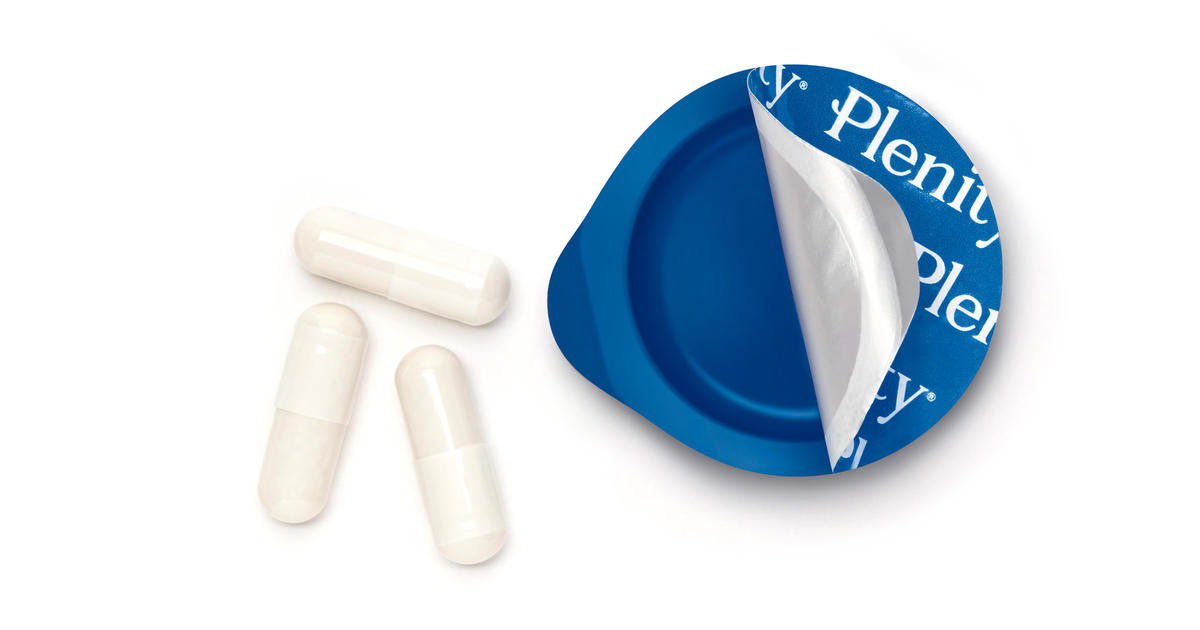
New weight loss treatment Plenity gets heavy marketing. How well does it work?
CBSN
First came the "edible billboard," which appeared last year during the holidays in New York's East Village loaded with cake treats. Then, in late January, came the national marketing campaign, with TV and digital media promoting the idea that trying to lose weight doesn't mean a person can't enjoy eating.
Those advertising messages are pushing a product named Plenity as a potential liberation from dieters' woes. It's a $98-a-month weight loss treatment that looks like a drug: Patients take three capsules twice a day. But it isn't a drug. And its success in racking up lost pounds, on average, is modest.
Plenity is FDA-approved as a device, one that contains sugar-sized grains of a plant-based, absorbent hydrogel. Each grain swells to 100 times its size, cumulatively filling about a quarter of a person's stomach. The three capsules containing them must be taken with two cups of water at least 20 minutes before eating. The gel is not absorbed and eventually exits the body in stool.

Trump administration political appointees have taken steps in recent weeks to exert unprecedented influence over the Centers for Disease Control and Prevention's flagship medical research publication, the Morbidity and Mortality Weekly Report, multiple federal health officials tell CBS News. The interference included dictating what to cover and withholding studies on the growing bird flu outbreak.

Since ChatGPT was released just over two years ago, its use everywhere from the workplace to academia has expanded significantly. In schools across the country, teachers and administrators have been grappling with how to contend with this new tool. While some say it has benefits, others point out the negatives, like cheating.











